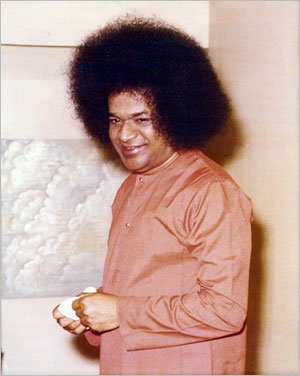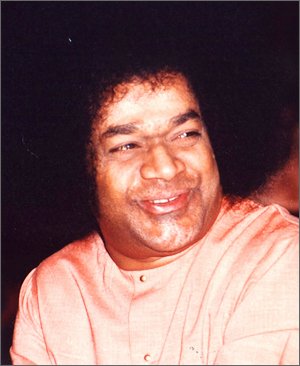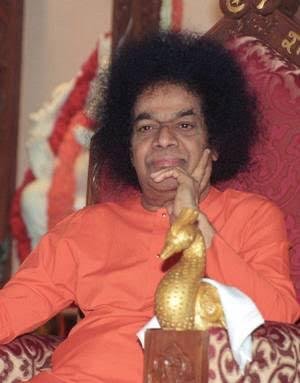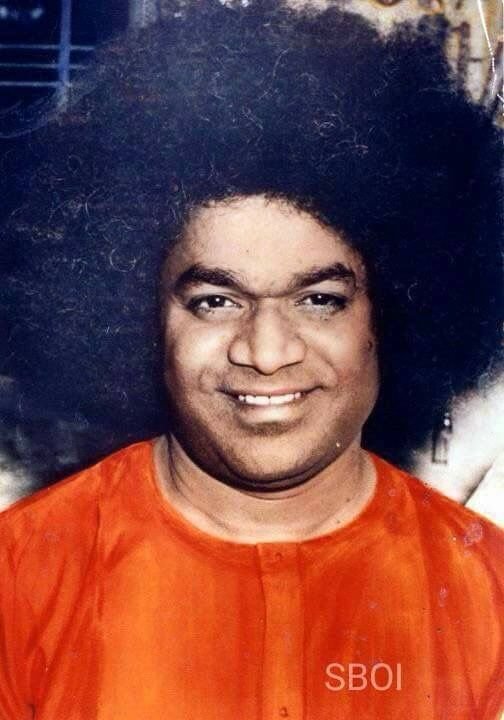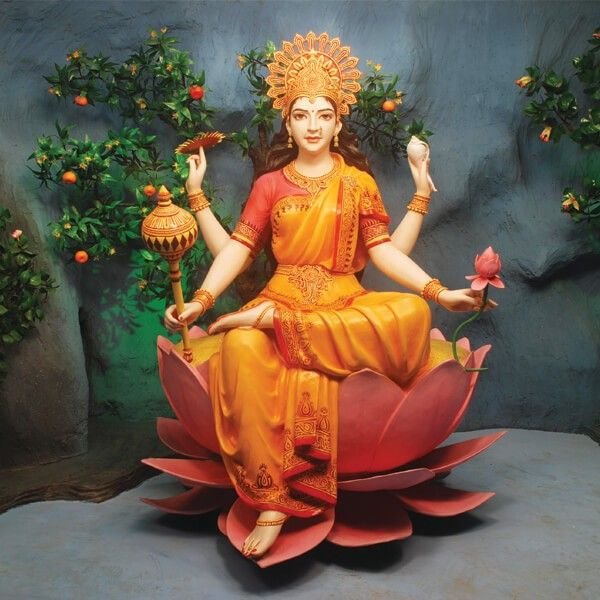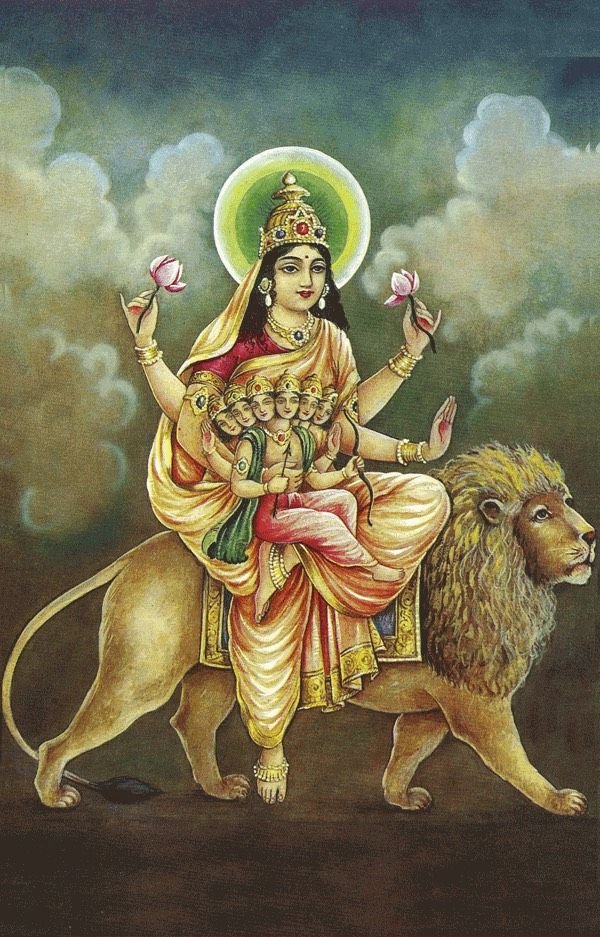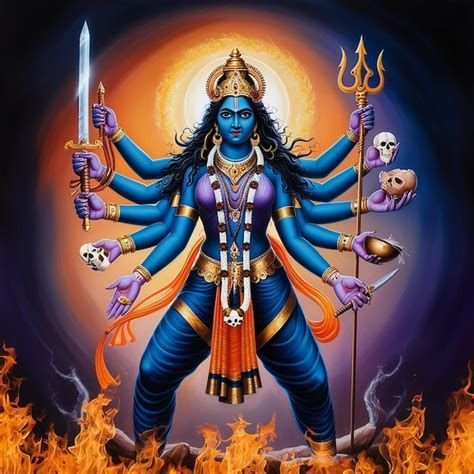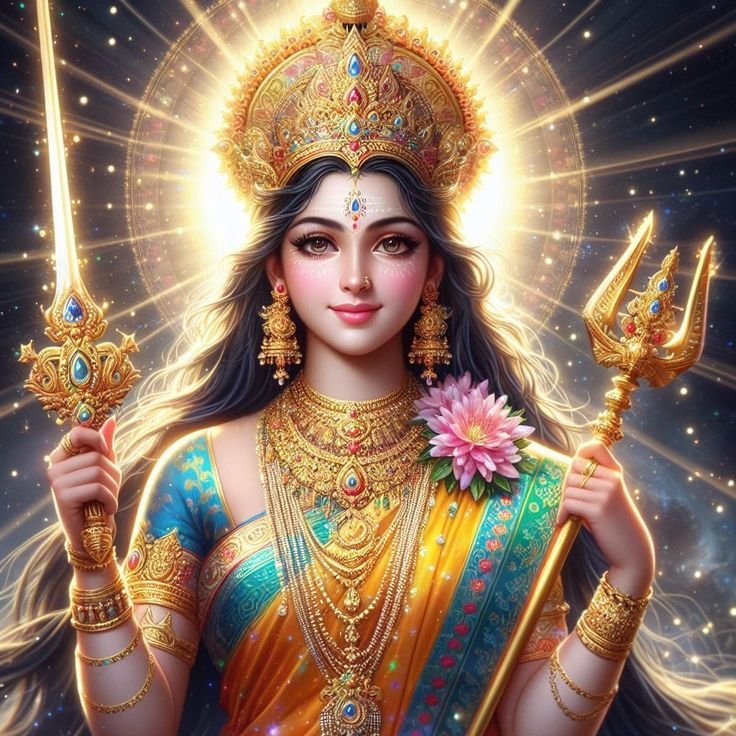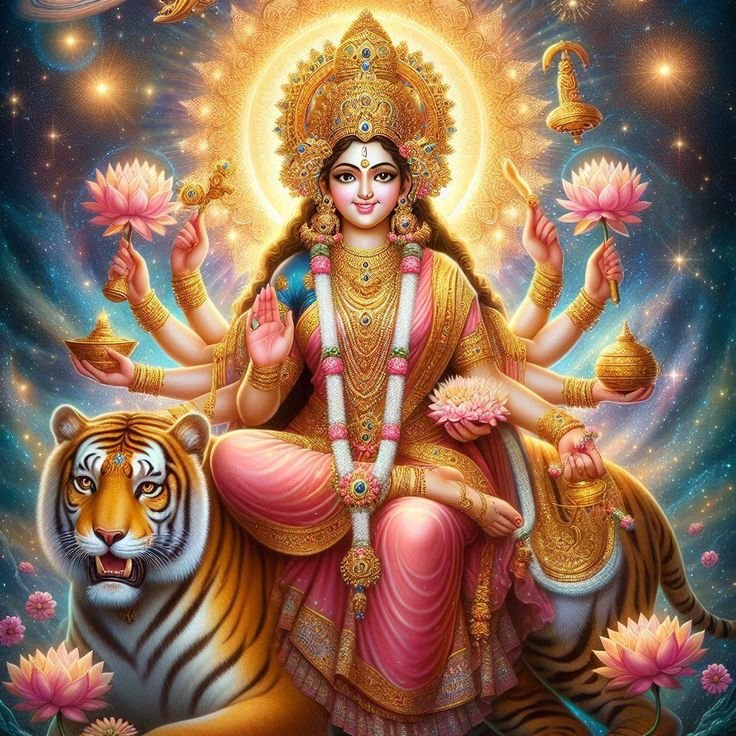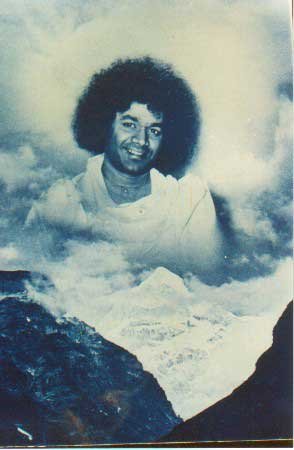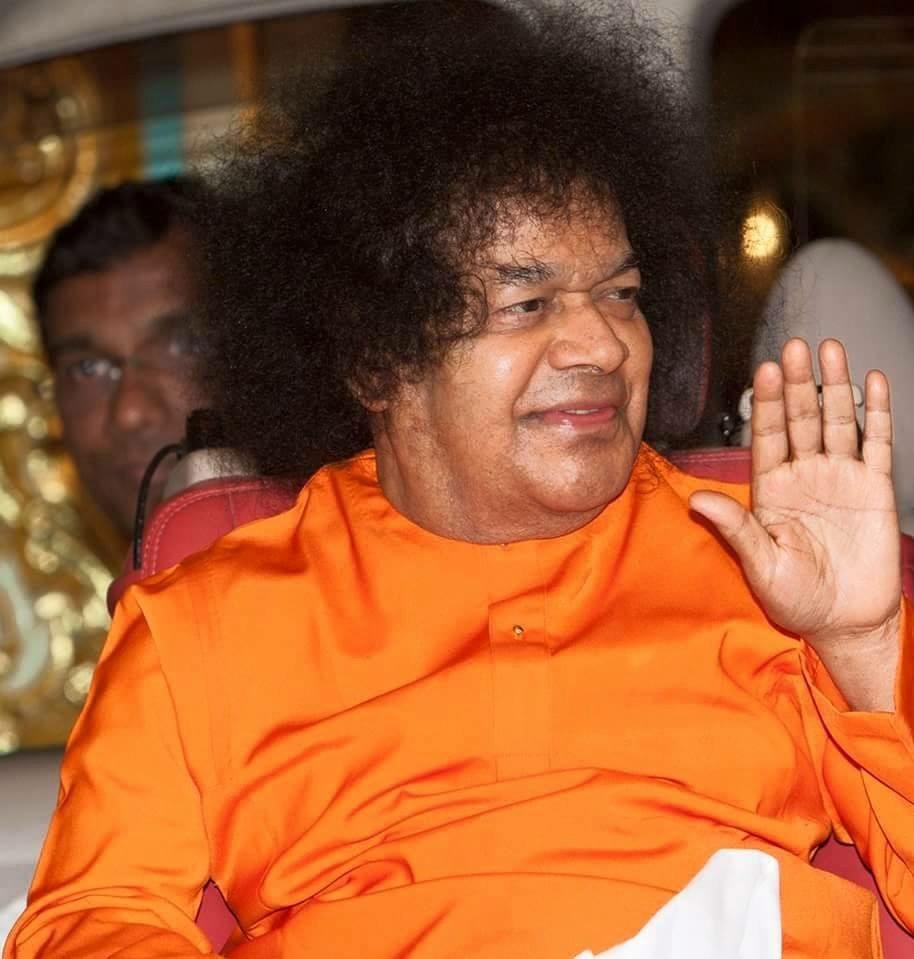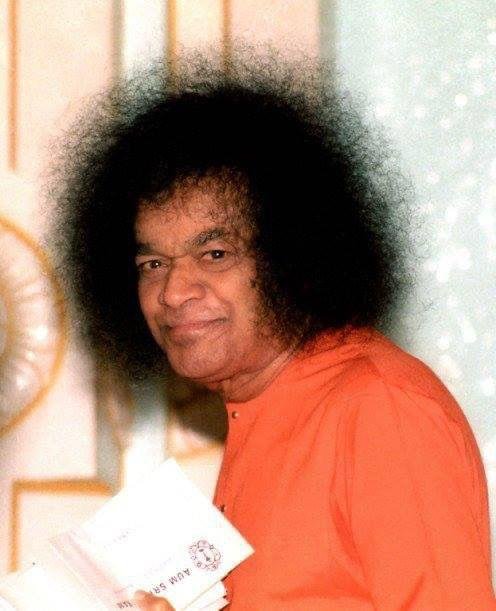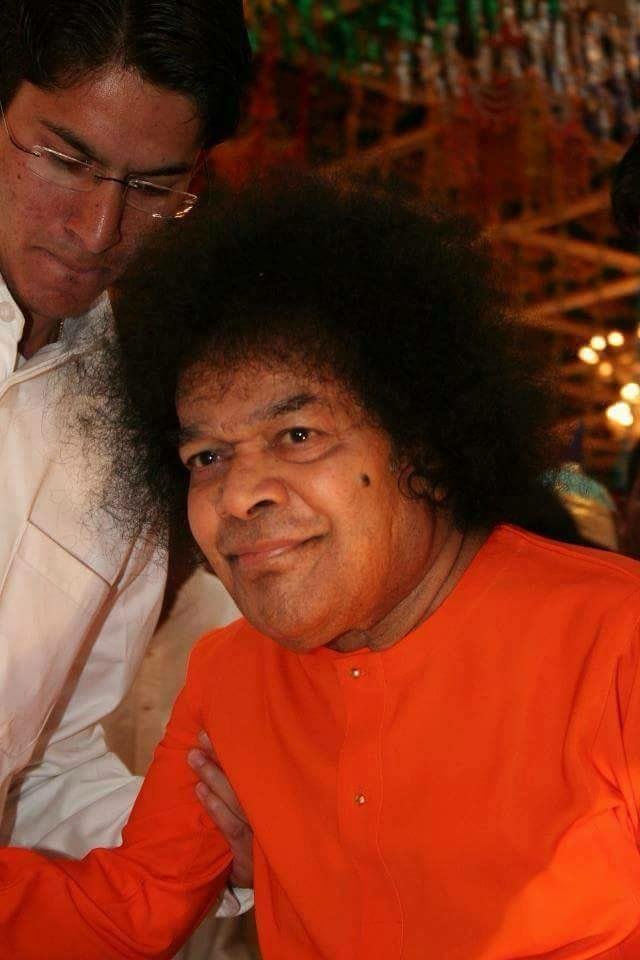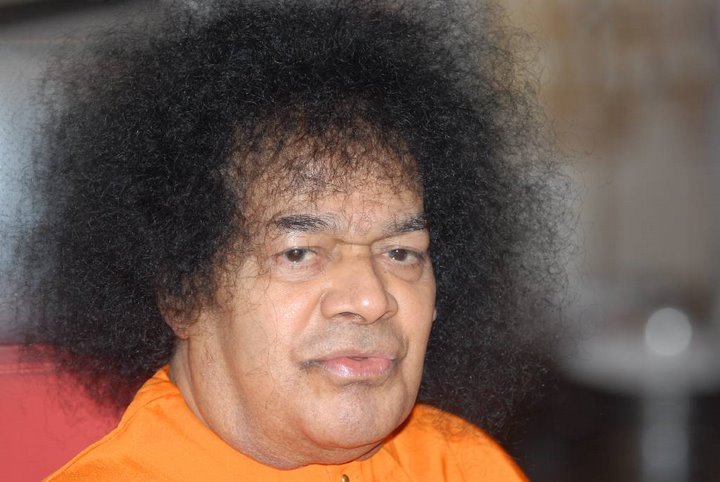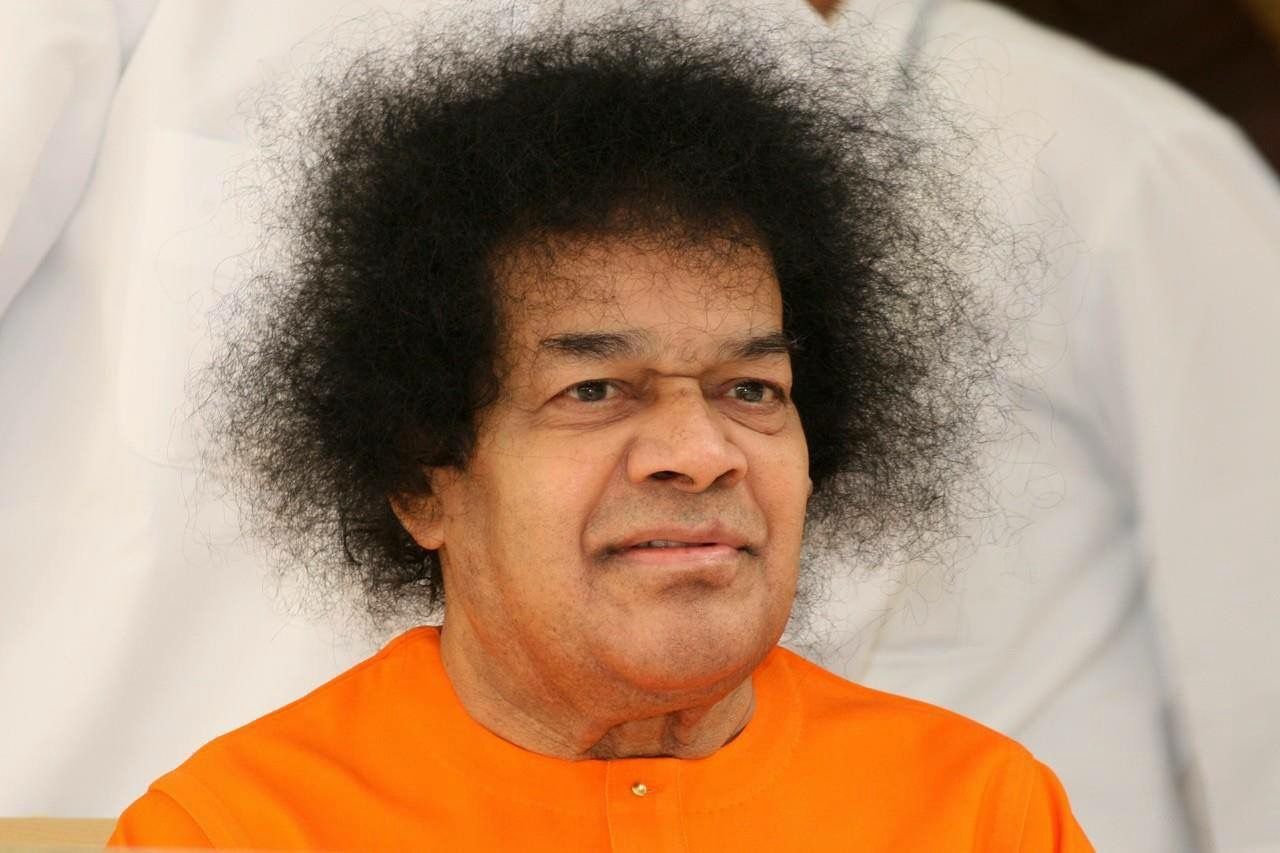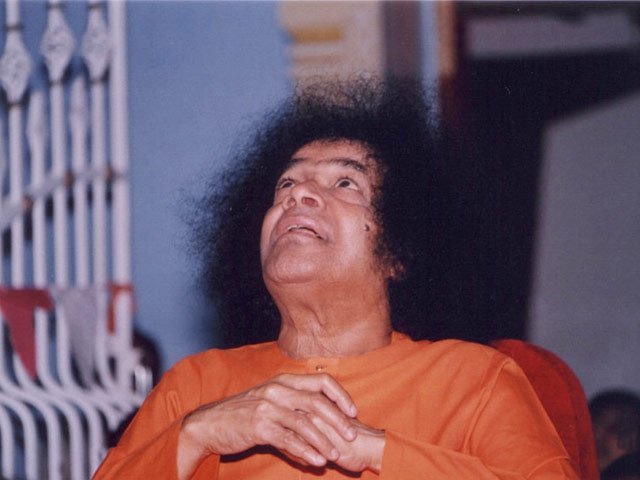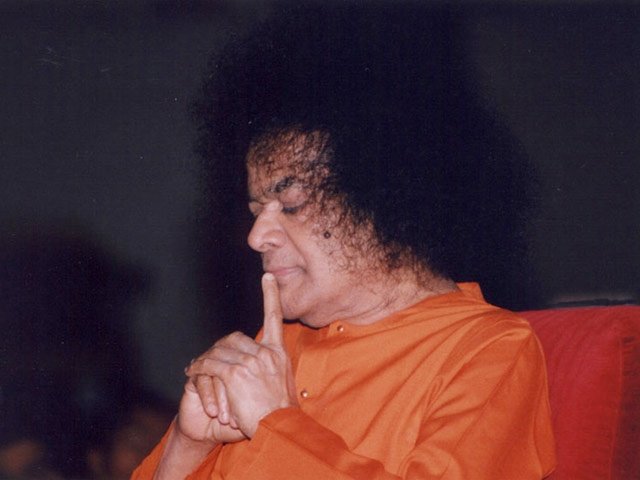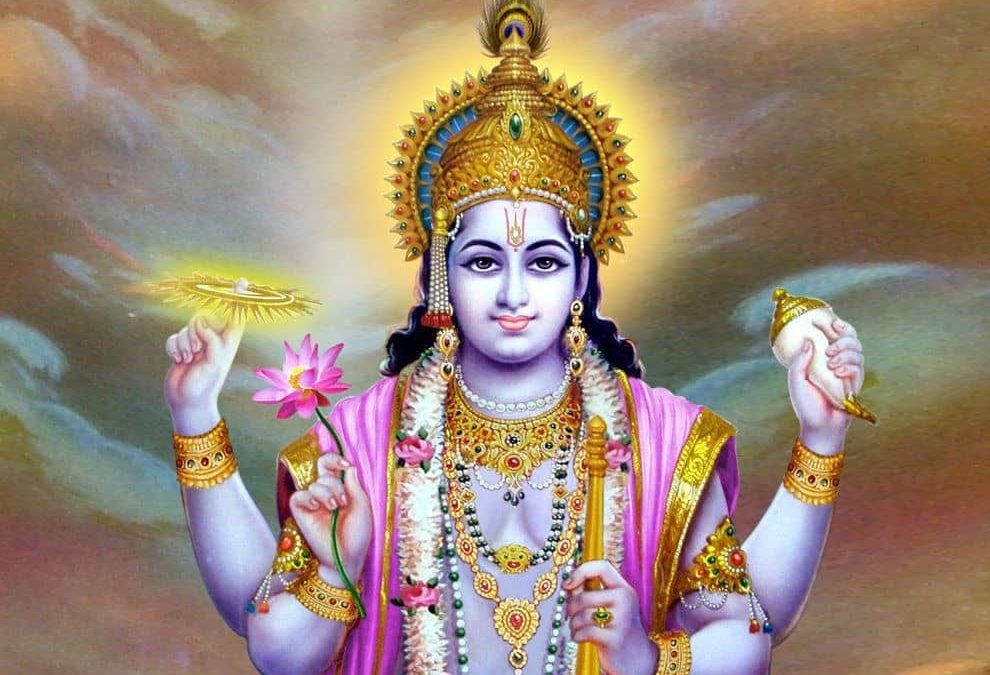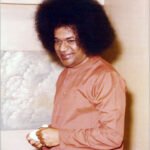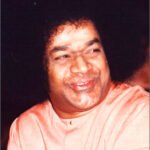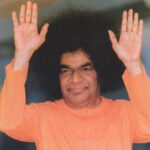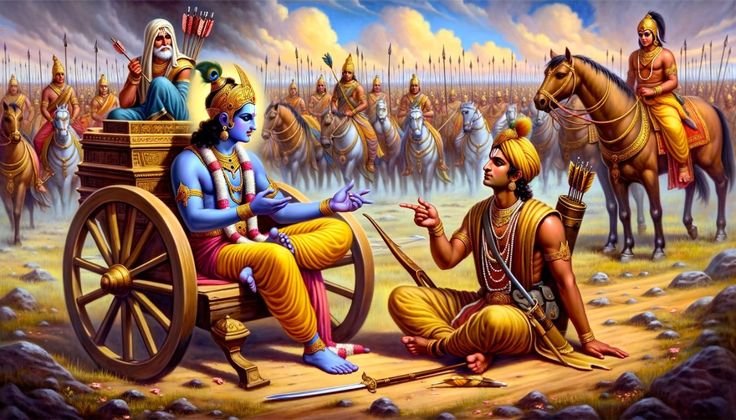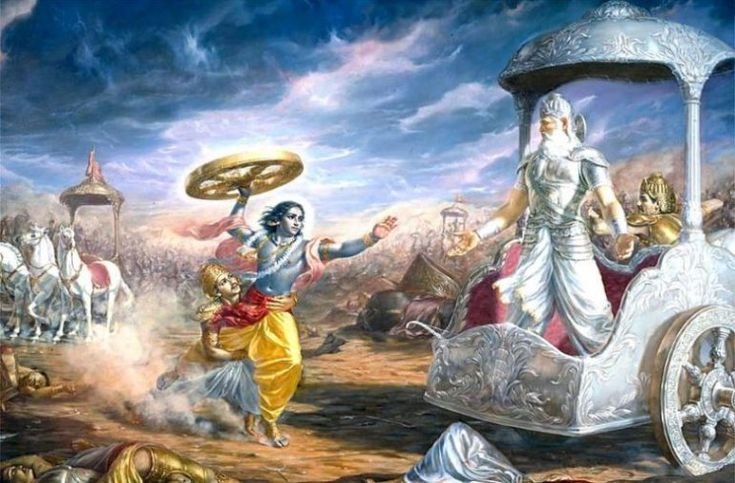Sixteen
Chapter 16
Daivasura Sampad Vibhaga Yoga
The sixteenth chapter of the Bhagavad Gita is “Daivasura Sampad Vibhaga Yoga”. In this chapter, Krishna describes explicitly the two kinds of natures among human beings – divine and demoniac. Those who possess demonic qualities associate themselves with the modes of passion and ignorance, do not follow the regulations of the scriptures and embrace materialistic views. These people have lower birth rates and further material bondage. But people who possess divine qualities follow the instructions of the scriptures, associate themselves with the mode of goodness and purify the mind through spiritual practices. This leads to the enhancement of divine qualities, and they eventually attain spiritual realisation.
Chapter 16
Daivasura Sampad Vibhaga Yoga
The sixteenth chapter of the Bhagavad Gita is “Daivasura Sampad Vibhaga Yoga”. In this chapter, Krishna describes explicitly the two kinds of natures among human beings – divine and demoniac. Those who possess demonaic qualities associate themselves with the modes of passion and ignorance, do not follow the regulations of the scriptures, and embrace materialistic views. These people have lower birth rates and further material bondage. But people who possess divine qualities follow the instructions of the scriptures, associate themselves with the mode of goodness and purify their minds through spiritual practices. This leads to the enhancement of divine qualities, and they eventually attain spiritual realisation.
Bhagavad Gita 16.1
श्री भगवानुवाच अभयं सत्त्वसंशुद्धिः ज्ञानयोगव्यवस्थितिः। दानं दमश्च यज्ञश्च स्वाध्यायस्तप आर्जवम्।।16.1।।
śhrī-bhagavān uvācha abhayaṁ sattva-sanśhuddhir jñāna-yoga-vyavasthitiḥ dānaṁ damaśh cha yajñaśh cha svādhyāyas tapa ārjavam
śhrī-bhagavān uvācha—the Supreme Divine Personality said; abhayam—fearlessness; sattva-sanśhuddhiḥ—purity of mind; jñāna—knowledge; yoga—spiritual; vyavasthitiḥ—steadfastness; dānam—charity; damaḥ—control of the senses; cha—and; yajñaḥ—performance of sacrifice; cha—and; svādhyāyaḥ—study of sacred books; tapaḥ—austerity; ārjavam—straightforwardness;
Translation
The Blessed Lord said: Fearlessness, purity of heart, steadfastness in knowledge and yoga, almsgiving, control of the senses, sacrifice, study of scriptures, austerity, and straightforwardness.
Commentary
16.1 अभयम् fearlessness? सत्त्वसंशुद्धिः purity of heart? ज्ञानयोगव्यवस्थितिः steadfastness in knowledge and Yoga? दानम् atmsgiving? दमः control of the senses? च and? यज्ञः sacrifice? च and? स्वाध्यायः study of Sastras? तपः austerity? आर्जवम् straightforwardness.Commentary The Lord made a mention of the three kinds of Nature that belong to sentient beings? viz.? the nature of the gods? Asuras andRakshasas? in the ninth discourse (verses 12 and 13). He now describes them in detail in this discourse. The distinction between the god or the godman and the Asuras is clearly drawn in the first? second? third and fourth verses. Daivi Prakriti or the nature of the gods leads to Moksha or release from the round of birth and death. The nature of the Asuras and Rakshasas leads to bondage. This is anobstacle to the attainment of knowledge of the Self. The divine nature must be accepted and cultivated the Asuric and Rakshasic nature should be abandoned. All these alities are found in human beings. There are Sattvic people who possess the divine attributes there are Asuras and Rakshasas among human beings also? who are endowed with demoniacal alities? who are filled with excessive Tamas. In anordinary man there is a mixture of the three Gunas. Tamas and Rajas pull a man downwards Sattva lifts a man upwards. Tamas and Rajas lead to bondage Sattva helps to attain salvation. Discipline yourself and develop Sattva This is the foundation of Yoga. This is the first preparatory discipline. The first rung in the spiritual ladder is reached by developing Sattva. When the mind is Sattvic? thee is calmness in it. Divine light can descend only when the mind is serene and cheerful.The Sattvic man controls the senses? does selfless service? and practises Japa? Pranayama? concentration? meditation? selfanalysis and eniry of Who am I He is not attracted by sensual objects. He has a burning desire for attaining Moksha. He is humble? generous? merciful? forbearing? tolerant and pious. He destroyshis little personality. The Rajasic man is proud? intolearnt? egoistic? selfsufficient? lustful? hottermpered? greedy and jealous. He works for his own glory and fame and selfaggrandisement. he develops his own little vain personality.There is intimate connection between the Gunas and Karmas. The nature of the Karmas depends upon the nature of the Gunas. A Sattvic man will do virtuous actions. A Rajasicand Tamasic man will perform evil actions. It is the Guna that goads a man to do actions. The Self or Brahman is actionless. It is the silent witness.The Lord sums up in the first three verses the alities of a godly man who is inclined to the path of liberation. He then enumerates the alities of the demoniacal man. The theme of this chapter is the tracing of the difference between the divine and theAsuric nature.Virtue and vice are relative terms. The virtue of one period will become the vice of the other. From the transcendental point of view? there is neither virtue nor vice.Why should there be evil How did evil arise — these are all transcendental estions (Atiprasnas). You can get answers to these estions only when you attain Selfrealisation. People unnecessarily rack their brains to get an answer to these estions. It is a serious mistake.Daivi Sampat (divine wealth or the wealth of divine alities) helps the aspirant to attain knowledge of the Self. The Sattvic or divine attributes such as fearlessness? purity of heart? control of the senses? etc.? constitute Daivi Sampat. They enable the aspirant to attain the highest state of superconsciousness (Nirvikalpa Samadhi) wherein the seer and the seen are united in one? the meditator and the meditated become identical. Divine alities or attributes which go to augment the bliss of the Self? which help the aspirant to attain the happiness of the Self? are called divine,wealth.Among the divine alities? fearlessness stands foremost. Fear is an effect of ignorance. Identification with the body causes fear. Blind attachment to the body?wife? children? house or property is the cause of fear. The sge who has realised the Self is absolutely fearless.He who knows the Bliss of Brahman from which words as well as the mind turn powerless? fears nothing. (Taittiriya Upanishad)Fearlessness is the devout observance of the precepts enjoined in the scriptures without doubting. The state of being free from the fear? How can I live now when Ihave renounced everything? when I have none to support me is fearlessness. A Sannyasi resolves when he takes Sannyasa? I will not induce fear in any living creature. Keeping up this resolve of Abhaya Dana (gift of the boon of fearlessness to all creatures) in thought? word and deed is Abhayam or fearlessness. Fear can be removed by constant thinking of the immortal and allblissful nature of the Self.
If you lead a life of honesty and truthfulness? if you devoutly observe the precepts of the scriptures without doubting? if you lead a life of right conduct? and if you remember God always? you will become fearless. When one beholds the Self only everywhere? when the sense of duality has vanished? when the sense of unity has dawned in him? how can he be afraid of anything? how can the feeling of feararise in him Fearlessness is essential for the attainment of Moksha or salvation. Fearlessness is the chief characteristic of a liberated sage. It is the one accurate measure of ones spiritual progress. It is the cardinal virtue of an illumined sage. That is the reason why it is placed in the forefront of all divine alities. Only a liberated sage can be absolutely fearless.Sattvic Subha Vasana (good tendency) is Daivi Sampat. It induces a man to practise discrimination? dispassion? control of the mind and the senses? etc.? which help him to attain knowledge of the Self. The Rajasic and the Tamasic (Asubha or evil) Vasnas (tendencies) which operate along the currents of RagaDvesha (likes and dislikes)? which induce one to perform actions which are prohibited by the scriptures and which producedisastrous effects? constitute demoniacal nature.In Asuric nature inclination towards sensual pleasures is predominant in Rakshasic nature hatred predominates and the Rakshasa does various sorts of harm and injury to others.Good tendencies lead to Moksha. Evil tendencies lead to bondage. Good tendencies must be cultivated. Evil tendencies should be eradicated.
You shoul first have a knowledge of the essential nature of these two Vasanas? if you wish to cultivate the good tendencies and eradicate the evil ones. This sixteenth discourse gives a vivid description of these tendencies.Sattvasamsuddhih Purity of understanding? cleanliness of life or purity of heart. Purity of mind? i.e.? giving up of cheating? hypocrisy? untruth and the like? in all dealings with the people? and doing transactions with perfect honesty and integrity is Sattvasamsuddhi.When the understanding abides constantly in the immortal Self and is thus firm and steadfast? you may know this to be a condition of purity. On account of purity the mind can know the Self. The state of the mind wherein it is free from doubts like Asambhavana (thought of improbability of the existence of the Self)? etc.? through hearing of the scriptures is Sattvasamsuddhi. As purity of mind cannot be obtained without devotion to the Lord? devotion is implied in these Sattvic virtues.Jnana Knowledge understanding the nature of the Self? as taught in the scriptures and by the preceptor Selfrealisation through meditation on the Great Sentence of the Upanishad. I am Brahman (Aham Brahmasmi)? is Jnana.Yoga is union of the individual soul with
the Supreme Being it is the direct realisation of the Self by concentration and meditation? through selfrestraint or control of the senses. The aspirant cognises through direct perception by the inner eye of intuition or wisdom what has been learnt from the scriptures and the preceptor. The aspirant attains Selfrealisation or direct knowledge. He becomes one with Brahman — the Absolute. He gets indirectknowledge or mere understanding or theoretical knowledge of Brahman from the scriptures. Now through the practice of Yoga he gets direct knowledge. The attempt which is favourable for the annihilation of the mind and the latent tendencies is also known as Yoga.Jnanayogavyavasthitih The state of Jivanmukti attained through Jnana Yoga? which is distinct from the state of the worldlyminded persons.Fearlessness?purity of heart and steadfastness in knowledge and Yoga are the three preeminent virtues amongst the Sattvic attributes enumerated in verses 1 to 3. They are found in Jnana Yogins only. The other alities are common to Jnana Yogins? Karma Yogins? Raja Yogins and Bhaktas. Unless you possess Sattvic virtues? you cannot practise any kind of Yoga. If you cultivate one virtue? all other virtues will clingto you by themselves. Fearlessness is the basis and foundation of the whole of mans moral structure within.Svadhyaya and Tamas constitute Kriya Yoga. Svadhyaya constitutes BrahmaYajna. Almsgiving and sacrifice pertain to Karma Yoga. Almsgiving? selfcontrol and sacrifice constitute Daivi Sampat for householders. Those alities mentioned in chapter XVI? verses 1 to 3? which belong to the aspirant whopractises a particular form of Yoga constitute the Daivi Sampat of the disciple on that path.Dana Almsgiving distributing food? clothes? etc.? as far as it iles in ones power? according to ones means. A charitable man hastens to comfort the distressed and helps the needy. Charity is of three kinds? viz.? Sattvic? Rajasic and Tamasic (see chapter XVII? 20 to 22). It opens the gates of heaven. It willbring nearer the means of liberation. Just as the tree gives fruit and shade without distinction? so also give to him who needs? without distinction? with a cheerful heart.Dama Selfrestraint? selfcontrol? control of the external senses. The control of the inner senses or the mind is described in the next verse.The practice of selfcontrol annihilates the union between the senses and the sensual objects.
It separates the senses from their respective objects. The aspirant will not allow the wind of the sensual objects to blow through the gateway of his senses. He keeps the senses under the strictest restraint. He lights the fire of dispassion at all the ten gates of the body. He takes rigid vows. He observes Mauna (the vow of silence) and celibacy. He is moderate in his diet. He keeps the golden mediumin everything. He checks the outgoing tendencies of the mind and the senses. He induces the mind and the senses to turn backwards towards their source. Just as an enemy is cut down by means of a weapon? so also every tendency towards sensual objects is cut down by the practice of selfcontrol. All internal promptings? cravings and Vasanas should be burnt in the fire of renunciation? at the ten gatesof the senses. As householders cannot practise perfect control of the senses? even moderation or regulated and disciplined life will constitute selfrestraint for them. The practice of selfcontrol includes forgiveness? harmlessness? truth? steadiness and,patience.Yajna Sacrifice. The fireworship (Agnihotra) and the like enjoined in the Vedas and also the sacrifice to the gods (DevaYajna) or worship of the gods? PitriYajna? BhutaYajna? ManushyaYajna and BrahmaYajna enjoined in the scriptures (Smritis).Svadhyaya Study of the Vedas in order to attain the unseen fruits.Tapas Austerity? moritification of the body and other forms of penance. True Tapas is meditation on the Self. It is fixing the mind on Brahman or the Self. It is to separate oneself from the physical body and the other four sheathsand to identify oneself with the Absolute. It is to turn the mind towards the soul. The three kinds of Tapas mentioned in chapter XVII? verses 14 to 16 come under this category.Arjavam Straightforwardness. This is conducive to the attainment of knowledge. The aspirant should always be candid? upright or straightforward. Straightforwardness should be his constant attitutde. A just and truthful man alone can be straightforward. He is respected by the people. He is liked by all. He attains success in all his endeavours. He never hides facts or truth.
Bhagavad Gita 16.2
अहिंसा सत्यमक्रोधस्त्यागः शान्तिरपैशुनम्।दया भूतेष्वलोलुप्त्वं मार्दवं ह्रीरचापलम्।।16.2।।
ahinsā satyam akrodhas tyāgaḥ śhāntir apaiśhunam dayā bhūteṣhv aloluptvaṁ mārdavaṁ hrīr achāpalam
ahinsā—non-violence; satyam—truthfulness; akrodhaḥ—absence of anger; tyāgaḥ—renunciation; śhāntiḥ—peacefulness; apaiśhunam—restraint from fault-finding; dayā—compassion; bhūteṣhu—toward all living beings; aloluptvam—absence of covetousness; mārdavam—gentleness; hrīḥ—modesty; achāpalam—lack of fickleness;
Translation
Harmlessness, truth, absence of anger, renunciation, peacefulness, absence of crookedness, compassion for beings, non-covetousness, gentleness, modesty, and absence of fickleness.
Commentary
16.2 अहिंसा harmlessness? सत्यम् truth? अक्रोधः absence of anger? त्यागः renunciation? शान्तिः peacefulness? अपैशुनम् absence of crookedness? दया compassion? भूतेषु in beings? अलोलुप्त्वम् noncovetousness? मार्दवम् gentleness? ह्रीः modesty? अचापलम् absence of fickleness.Commentary Ahimsa Noninjury in thought? word and deed. By refraining from injuring living creatures the outgoing forces of Rajas are curbed. Ahimsa is divided into physical? verbal and mental.Satyam Truth Speaking of things as they are? without uttering unpleasant words or lies. This includes selfrestraint? absence of jealousy? forgiveness? patience? endurance and kindness.Akrodhah Absence of anger when insulted? ruked or beaten? i.e.? even under the gravest provocation.Tyagah Renunciation — literally? giving up giving up of Vasanas? egoism and the fruits of action. Charity is also Tyaga. This has already been mentioned in the previous verse.Santih Serenity of the mind.Apaisunam Absence of narrowmindedness.Daya Compassion to those who are in distress. A man of compassion has a tender heart. He lives only for the benefit of the world. Compassion indicates realisation of unity or oneness with other creatures.
Aloluptvam Non covetousness. The senses are not affected or excited when they come in contact with their respective objects the senses are withdrawn from the objects of the senses? just as the limbs of the tortoise are withdrawn by it into its own shell.Hrih It is shame felt in the performance of actions contrary to the rules of the Vedas or of society.Achapalam Not to speak or move the hands and legs in vain avoidance of useless action.Straightforwardness? noninjury? absence of anger? etc.? are special alities of the Brahmanas. They are the Sattvic virtues which belong to them.Moreover —
Bhagavad Gita 16.3
तेजः क्षमा धृतिः शौचमद्रोहो नातिमानिता। भवन्ति सम्पदं दैवीमभिजातस्य भारत।।16.3।।
tejaḥ kṣhamā dhṛitiḥ śhaucham adroho nāti-mānitā bhavanti sampadaṁ daivīm abhijātasya bhārata
tejaḥ—vigor; kṣhamā—forgiveness; dhṛitiḥ—fortitude; śhaucham—cleanliness; adrohaḥ—bearing enmity toward none; na—not; ati-mānitā—absence of vanity; bhavanti—are; sampadam—qualities; daivīm—godly; abhijātasya—of those endowed with; bhārata—scion of Bharat
Translation
Vigor, forgiveness, fortitude, purity, absence of hatred, absence of pride—these belong to one born for a divine state, O Arjuna.
Commentary
16.3 तेजः vigour? क्षमा forgiveness? धृतिः fortitude? शौचम् purity? अद्रोहः absence of hatred? नातिमानिता absence of overpride? भवन्ति belong? सम्पदम् state? दैवीम् divine? अभिजातस्य to the one born for? भारत O descendant of Bharata (Arjuna).Commentary Tejas Vigour? energy? brilliance or lustre of the skin. The aspirant who is bent on attaining salvation marches boldly on the spiritual path. Nothing can tempt him or slacken his progress. This unbroken progress towards the realisation of the Self or the Absolute is lustre. It overcomes the downward pull of Tamas.Kshama Forgiveness. He who is endowed with this virtue does not exhibit anger even when he is insulted? ruked or beaten? although he is strong enough to take vengeance. He is unaffected by the insult or injury.Dhriti The sage absorbs within himself all calamities. He is steadfast even when he is in very adverse and trying conditions this is a particular Sattvic Vritti or state of mind which removes depression or exhaustion of the body and senses when they sink down. An aspirant who is endowed with this divine attribute never gets disheartened? even when he is under severe trials and difficulties or tribulations. Dhriti is a divine pickmeup.
(tonic) when the body and the senses are in a state of low spirits or dejection.Saucham Purity. This is of two kinds? viz.? external and internal. External purity is achieved by means of earth and water. The mind and heart (intellect) are freed from Maya (deception? lust? anger? greed? pride? jealousy? hypocrisy? likes and dislikes) by the practice of celibacy? forgiveness? friendliness? charity? humility? nobilit? love? complacency? compassion? etc. — this is internal purity. This is more important than external purity.Adroha Absence of hatred? absence of desire to injure others.Atimanita is great pride. A proud man thinks that he is superior to others and that he is worthy of being honoured by others. Naatimanita is the opposite of this ality.Tejas? Kshama and Dhriti are the special alities or Dharmas of the Kshatriyas (warrior class). These are the Sattvic alities of Kshatriyas. Saucham and Adroha are the special Dharmas of the Vaisyas. They are the Sattvic alities of the Vaisyas (merchant class). Absence of pride is the special Dharma of the Sudras (servant class). It is a Sattvic ality that belongs to the Sudras.The divine wealth or Daivi Sampat consists of twentysix attributes. This is a rare gift from the Lord. This is an inexhaustible wealth which cannot be taken away by dacoits. This helps the aspirant attain the imperishable and immacultate Brahmic seat. It is the shortcut to the realm of eternal bliss or Moksha.
Bhagavad Gita 16.4
दम्भो दर्पोऽभिमानश्च क्रोधः पारुष्यमेव च।अज्ञानं चाभिजातस्य पार्थ सम्पदमासुरीम्।।16.4।।
dambho darpo ’bhimānaśh cha krodhaḥ pāruṣhyam eva cha ajñānaṁ chābhijātasya pārtha sampadam āsurīm
dambhaḥ—hypocrisy; darpaḥ—arrogance; abhimānaḥ—conceit; cha—and; krodhaḥ—anger; pāruṣhyam—harshness; eva—certainly; cha—and; ajñānam—ignorance; cha—and; abhijātasya—of those who possess; pārtha—Arjun, the son of Pritha; sampadam—qualities; āsurīm—demoniac
Translation
Hypocrisy, arrogance, and self-conceit, anger, harshness, and ignorance—these belong to one who is born for a demoniacal state, O Partha.
Commentary
16.4 दम्भः hypocrisy? दर्पः arrogance? अभिमानः selfconceit? च and? क्रोधः wrath? पारुष्यम् harshness? एव even? च and? अज्ञानम् ignorance? च and? अभिजातस्य to the one born for? पार्थ O Partha? सम्पदम् state?,आसुरीम् demoniacal.Commentary Dambha Hypocrisy. To pretend to be what one is not? to pretend to be religious and pious. It consists of bragging of ones own greatness. Religious hypocrisy is the worst form of hypocrisy. Hypocrisy is a mixture of deceit and falsehood. Those who boast about their own merits will get demerit only.Darpa Arrogance. Pride of learning? wealth? high connection? etc. An arrogant man cannot endure to see his fellowmen happy. He is more and more enraged at the fortune of his fellowmen in the matter of learning? happiness and prosperity.Parushyam (in speech) To speak of the blind as having lotuslike eyes? of the ugly as beautiful? of a man of low birth as one of high birth and so on? usually with an ulterior? selfish or evil motive.Ajnanam Ignorance? misconception of ones duties. An ignorant man is blind as to what should be done and what should not be done. There is absence of discrimination. Just as a child will put anything it gets in its hands into its mouth?
whether it is clean or dirty? so also is the condition of the ignorant man who is not able to discriminate between the Real and the unreal? the good and the evil? virtue and vice. He is on the path of destruction. He does not know the road that leads to Moskha or liberation. He is drowned in the ocean of this worldly existence.These are the six demonical alities. These evil alities constitute the satanic or demonical wealth. They are obstacles on the path of liberation.By addressing Arjuna as Partha? Lord Krishna implies that Arjuna has no demonical alities in him as he is born in a noble family and is the son of Pritha.People of Asuric nature have no faith. They dispute every doctrine. They deny the existence of God. They deny the cycle of the worldprocess? the Vedas and the laws of ethics. Sensual indulgence is their goal. They rob people and take away their neighbours wives. They kill people ruthlessly. They do not believe in reincarnation and in the other world. They have no idea of right conduct? purity and selfrestraint.Asuras are those persons who have waged war and who still wage war with the gods in heaven. Those who are endowed with Asuric tendencies or evil alities are Asuras or demons. They exist in abundance in this iron age. Kamsa was an Asura. Hiranyakasipu was an Asura.Even a man of university alitifactions and titles is a veritable Asura if he is endowed with evil tendencies or Asubha Vasanas.Esoterically? the war between the Asuras and the gods is the internal fight that is ever going on between the pure and the impure tendencies in man? between Sattva and RajasTamas.
Bhagavad Gita 16.5
दैवी सम्पद्विमोक्षाय निबन्धायासुरी मता।मा शुचः सम्पदं दैवीमभिजातोऽसि पाण्डव।।16.5।।
daivī sampad vimokṣhāya nibandhāyāsurī matā mā śhuchaḥ sampadaṁ daivīm abhijāto ’si pāṇḍava
daivī—divine; sampat—qualities; vimokṣhāya—toward liberation; nibandhāya—to bondage; āsurī—demoniac qualities; matā—are considered; mā—do not; śhuchaḥ—grieve; sampadam—virtues; daivīm—saintly; abhijātaḥ—born; asi—you are; pāṇḍava—Arjun, the son of Pandu
Translation
The divine nature is deemed conducive to liberation, and the demonic to bondage. Grieve not, O Arjuna, for you are born with divine endowments.
Commentary
16.5 दैवी divine? सम्पत् state? विमोक्षाय for liberation? निबन्धाय for bondage? आसुरी the demoniacal? मता is deemed? मा not? शुचः grieve? सम्पदम् state? दैवीम् the divine? अभिजातः one born for? असि (thou) art? पाण्डव O Pandava.Commentary Sampat Endowment? wealthy state? nature? virtue.Moksha Liberation from the bondage of Samsara? release from the round of birth and death. The,divine nature leads grief and delusion? as he was born with Sattvic tendencies? leading towards salvation. Arjuna? on hearing the words of Lord Krishna? might have thought within himself? Do I possess divine nature or demoniacal nature The Lord? in order to remove Arjunas doubt? said? Grieve not? O Arjuna? thou art born with divine alities. Thou art fortunate. Thou mayest attain to the happiness of Selfrealisation.Do not think? O Arjuna? that by engaging yourself in battle and killing people you will become an Asura. Grieve not on this score. You will establish the kingdom of righteousness by fighting this righteous battle.
Bhagavad Gita 16.6
द्वौ भूतसर्गौ लोकेऽस्मिन् दैव आसुर एव च। दैवो विस्तरशः प्रोक्त आसुरं पार्थ मे श्रृणु।।16.6।।
dvau bhūta-sargau loke ’smin daiva āsura eva cha daivo vistaraśhaḥ prokta āsuraṁ pārtha me śhṛiṇu
dvau—two; bhūta-sargau—of created living beings; loke—in the world; asmin—this; daivaḥ—divine; āsuraḥ—demoniac; eva—certainly; cha—and; daivaḥ—the divine; vistaraśhaḥ—at great length; proktaḥ—said; āsuram—the demoniac; pārtha—Arjun, the son of Pritha; me—from me; śhṛiṇu—hear
Translation
There are two types of beings in this world: the divine and the demoniacal. The divine has been described at length; hear from Me, O Arjuna, about the demoniacal.
Commentary
16.6 द्वौ two? भूतसर्गौ types of beings? लोके in world? अस्मिन् (in) this? दैवः the divine? आसुरः demonical? एव even? च and? दैवः the divine? विस्तरशः at length? प्रोक्तः has been described? आसुरम् demoniacal? पार्थ O Partha? मे from Me? श्रृणु hear.Commentary The two divisions of created beings? the one divine and the other satanic? carry on their respective activities in accordance with their natural tendencies or traits.In the Brihadaranyaka Upanishad also you will find Verily there are two classes of the Creators creatures — gods and demons (I.3.1).Bhutasargau Creations of beings? types or classes of creatues. Creation here means what is created. The men who are created with the two kinds of nature? the divine and the demonical? are here mentioned as the two creations. Every man in this world comes under the one or the other of the two creations? the divine and the demoniacal.Lord Krishna says to Arjuna? I will now describe to thee the characteristics of those men who are endowed with the devilish alities. If you have an understanding of the demoniacal alities? you will avoid them. The demoniacal nature is described in detail to the very end of this discourse.There is some reference in chapter IX? verses 9? 11 and 12? to the demoniacal nature but as the description is incomplete it is completed in this discourse.The divine nature has been declared in detail by the blessed Lord in the previous chapters — the state of a Sthitaprajna in chapter II? the state of a Bhagavata in chapter XII and the state of a Trigunatita in chapter XIV and in the first three verses of this discourse.
Bhagavad Gita 16.7
प्रवृत्तिं च निवृत्तिं च जना न विदुरासुराः।न शौचं नापि चाचारो न सत्यं तेषु विद्यते।।16.7।।
pravṛittiṁ cha nivṛittiṁ cha janā na vidur āsurāḥ na śhauchaṁ nāpi chāchāro na satyaṁ teṣhu vidyate
pravṛittim—proper actions; cha—and; nivṛittim—improper actions; cha—and; janāḥ—persons; na—not; viduḥ—comprehend; āsurāḥ—those possessing demoniac nature; na—neither; śhaucham—purity; na—nor; api—even; cha—and; āchāraḥ—conduct; na—nor; satyam—truthfulness; teṣhu—in them; vidyate—exist
Translation
The demoniacal do not know what to do and what to refrain from; they have neither purity, nor right conduct, nor truth.
Commentary
16.7 प्रवृत्तिम् action? च and? निवृत्तिम् inaction? च and? जनाः men? न not? विदुः know? आसुराः the demoniac? न not? शौचम् purity? न not? अपि also? च and? आचारः (right) conduct? न not? सत्यम् truth? तेषु in them? विद्यते is.Commentary The demoniacal do not understand the nature of action and inaction (right abstinence). The idea of a Self apart from the body? doing nothing (actionless) but imply watching the play of the Gunas is something incomprehensible to them. They have no consideration for the interest of others. They work for the sake of their bodies or sensual enjoyment. They are greedy? selfish and cruel. Therefore? they have neither good conduct nor good behaviour. They are untruthful? unjust and impure. They do not know what actions they should do in order to attain the goal of life or end of human existence? nor from what actions they should refrain to ward off,evil.Those who are endowed with demoniacal alities are sunk in the mire of ignorance. They are totally ignorant of what is prescribed or what is prohibited action. They have not the least idea of what purity or cleanliness is. Their actions are crooked. They know neither right Pravritti nor right Nivritti. They have no idea of virtue or vice or of scriptural injunctions or prohibitions. They will never speak loving words. They are hypocrites and liars.
Bhagavad Gita 16.8
असत्यमप्रतिष्ठं ते जगदाहुरनीश्वरम्।अपरस्परसम्भूतं किमन्यत्कामहैतुकम्।।16.8।।
asatyam apratiṣhṭhaṁ te jagad āhur anīśhvaram aparaspara-sambhūtaṁ kim anyat kāma-haitukam
asatyam—without absolute truth; apratiṣhṭham—without any basis; te—they; jagat—the world; āhuḥ—say; anīśhvaram—without a God; aparaspara—without cause; sambhūtam—created; kim—what; anyat—other; kāma-haitukam—for sexual gratification only
Translation
They say, “This universe is without truth, without a moral basis, without a God, brought about by mutual union, with lust as its cause; what else?”
Commentary
16.8 असत्यम् without truth? अप्रतिष्ठम् without (moral) basis? ते they? जगत् the world? आहुः say? अनीश्वरम् without a God? अपरस्परसम्भूतम् brought about by mutual union? किम् what? अन्यत else? कामहैतुकम् with lust for its cause.Commentary They hold that the universe is without any substratum or support or an undying basic reality.This is a description of the opinion of atheists like the Charvakas and other materialists. They do not believe in the existence of Brahman Who is the support of this world. They do not even accept the existence of an Isvara in this world. They say We are unreal. Therefore this world also is unreal? the scriptures which declare the truth are also unreal. What else but lust can be the cause of this universe Sexual passion is the sole cause of all living creatures.
There is no such thing as the theory of Karma. The whole world is caused by the mutual union of man and woman under the impulse of lust. There is neither virtue nor vice. There is no Lord Who dispenses the fruits of actions of the individuals according to virtue and vice. Dharma and Adharma are not the basis of this world. Sexual desire is the sole basis for this universe. This world is a world of chance.
. They are not endowed with the faculty of introspection. They are ignorant of the field (Nature) and knower of the field (God).Mutual union Sexual union it may mean the union of atoms. The world arose from the combination of atoms according to the Vaiseshikas.
Bhagavad Gita 16.9
एतां दृष्टिमवष्टभ्य नष्टात्मानोऽल्पबुद्धयः।प्रभवन्त्युग्रकर्माणः क्षयाय जगतोऽहिताः।।16.9।।
etāṁ dṛiṣhṭim avaṣhṭabhya naṣhṭātmāno ’lpa-buddhayaḥ prabhavanty ugra-karmāṇaḥ kṣhayāya jagato ’hitāḥ
etām—such; dṛiṣhṭim—views; avaṣhṭabhya—holding; naṣhṭa—misdirected; ātmānaḥ—souls; alpa-buddhayaḥ—of small intellect; prabhavanti—arise; ugra—cruel; karmāṇaḥ—actions; kṣhayāya—destruction; jagataḥ—of the world; ahitāḥ—enemies
Translation
Holding this view, these ruined souls of small intellect and fierce deeds come forth as enemies of the world, intent on its destruction.
Commentary
16.9 एताम् this? दृष्टिम् view? अवष्टभ्य holding? नष्टात्मानः ruined souls? अल्पबुद्धयः of small intellect? प्रभवन्ति come forth? उग्रकर्माणः of fierce deeds? क्षयाय for the destruction? जगतः of the world? अहिताः enemies.Commentary They rob others. They acire wealth by destroying others. They boast of their evil actions.Nashtatmanah Ruined souls They have lost all chances of attaining Selfrealisation or going to the higher world.Alpabuddhayah They have a small intellect as they identify themselves with their little bodies full of impurities? as they have no conception of the Supreme Beign? and as their intellects are concerned with the little sensual pleasures only (eating? drinking? etc.).Ugrakarmanah Of fierce deeds They always injure others. They murder for aciring wealth. They do any heinous crime to get money and women. They bring great confusion and destroy the peace and harmony of the world.Enemies of the world World here means people who live in the world.
Bhagavad Gita 16.10
काममाश्रित्य दुष्पूरं दम्भमानमदान्विताः।मोहाद्गृहीत्वासद्ग्राहान्प्रवर्तन्तेऽशुचिव्रताः।।16.10।।
kāmam āśhritya duṣhpūraṁ dambha-māna-madānvitāḥ mohād gṛihītvāsad-grāhān pravartante ’śhuchi-vratāḥ
kāmam—lust; āśhritya—harboring; duṣhpūram—insatiable; dambha—hypocrisy; māna—arrogance; mada-anvitāḥ—clinging to false tenets; mohāt—the illusioned; gṛihītvā—being attracted to; asat—impermanent; grāhān—things; pravartante—they flourish; aśhuchi-vratāḥ—with impure resolve
Translation
Filled with insatiable desires, full of hypocrisy, pride, and arrogance, holding evil ideas due to delusion, they work with impure intentions.
Commentary
16.10 कामम् desire? आश्रित्य abiding in? दुष्पूरम् insatiable? दम्भमानमदान्विताः full of hypocrisy? pride and,arrogance? मोहात् through delusion? गृहीत्वा having held? असद्ग्राहान् evil ideas? प्रवर्तन्ते they work? अशुचिव्रताः with impure resolves.Commentary These soulless malevolent persons perform cruel and sinful actions. Their minds are saturated with vanity? conceit and arrogance. They entertain in their minds unholy resolves and unreasonable ideas. They harbour insatiable desires in their hearts. Just as a monkey becomes more and more intoxicated if wine if given to it? so also the older they grow the more and more arrogant and lustful do they become. They cause the ruin and death of those around them. They boast of their own actions and treat others with great contempt. They are very much attached to their bodies. They worship their bodies. Their passion is boundless. They are stupid and obstinate and so they have no firm determination.Desire is insatiable like fire. Enjoyment cannot bring about satisfaction of the desires. The more you enjoy? the stronger does the desire become. After an object is enjoyed? there springs up a desire to continue the enjoyment for ever. You take recourse to all sorts of devices to preserve the objects.Although a man is not righteous he pretends to be a man of righteousness. This is hypocrisy. Although a man is not worthy of being honoured? he claims to be so. This is Mana (pride). There is false dignity. Although a man does not possess great things he superimposes them on himself. This is Mada.These Asuras make impure resolves. I will worship such and such a deity by repeating such and such a Mantra and get hold of such and such a woman. I will repeat such and such a Mantra and kill such and such a man.
Bhagavad Gita 16.11
चिन्तामपरिमेयां च प्रलयान्तामुपाश्रिताः। कामोपभोगपरमा एतावदिति निश्िचताः।।16.11।।
chintām aparimeyāṁ cha pralayāntām upāśhritāḥ kāmopabhoga-paramā etāvad iti niśhchitāḥ
chintām—anxieties; aparimeyām—endless; cha—and; pralaya-antām—until death; upāśhritāḥ—taking refuge; kāma-upabhoga—gratification of desires; paramāḥ—the purpose of life; etāvat—still; iti—thus; niśhchitāḥ—with complete assurance
Translation
Giving themselves over to immeasurable cares that end only with death, regarding the gratification of lust as their highest aim, and feeling sure that that is all.
Commentary
16.11 चिन्ताम् cares? अपरिमेयाम् immeasurable? च and? प्रलयान्तम् ending only with death? उपाश्रिताः refuged in? कामोपभोगपरमाः regarding gratification of lust as their highest aim? एतावत् that is all? इति thus? निश्चिताः feeling sure.Commentary They are beset with immense cares? worries and anxieties and their minds are engrossed in aciring and preserving the countless sensual objects.
the strong conviction that the sensual enjoyment is the highest end of a man. They are steeped in enjoying the objects of the senses. They firmly believe that that is everything. They believe that sensual enjoyment is the supreme source of happiness and there is no such thing as eternal bliss of the soul or transcendental bliss of the Self. They have no belief in the happiness in another world (or plane) or in the perennial bliss which is independent of sensual objects? which is beyond the reach of the senses. They have a dull and gross intellect? and so they cannot grasp the subtle higher truth. Sensual enjoyment is the greatest object of attainment for them.
Bhagavad Gita 16.12
आशापाशशतैर्बद्धाः कामक्रोधपरायणाः। ईहन्ते कामभोगार्थमन्यायेनार्थसञ्चयान्।।16.12।।
āśhā-pāśha-śhatair baddhāḥ kāma-krodha-parāyaṇāḥ īhante kāma-bhogārtham anyāyenārtha-sañchayān
āśhā-pāśha—bondage of desires; śhataiḥ—by hundreds; baddhāḥ—bound; kāma—lust; krodha—anger; parāyaṇāḥ—dedicated to; īhante—strive; kāma—lust; bhoga—gratification of the senses; artham—for; anyāyena—by unjust means; artha—wealth; sañchayān—to accumulate
Translation
Bound by a hundred ties of hope, given over to lust and anger, they strive to obtain hoards of wealth by unlawful means for sensual enjoyment.
Commentary
16.12 आशापाशशतैः by a hundred ties of hope? बद्धाः bound? कामक्रोधपरायणाः given over to lust and anger? ईहन्ते (they) strive (to attain)? कामभोगार्थम् for sensual enjoyment? अन्यायेन by unlawful means? अर्थसञ्चयान् hoards of wealth.Commentary They murder people and rob them of their wealth in order to have sensual enjoyments. They amass wealth for sensepleasure only? but not for doing righteous actions.
They have no mercy. They are very cruel. They are held in bondage by a hundred ties of expectation. They harbour in their hearts a craving for all kinds of sensual objects. Various sorts of desires crop up in their mind. When their desires are not gratified they become furious. They acire wealth by unjust means. Hope or expectation binds a man to the wheel of Samsara.,Therefore hope is likened to a cord or a rope. There is no end to their cravings. Though they possess enormous wealth their cravings are not appeased. They multiply daily. These people become hopeless victims of greed.
Bhagavad Gita 16.13
श्री भगवानुवाच अभयं सत्त्वसंशुद्धिः ज्ञानयोगव्यवस्थितिः। दानं दमश्च यज्ञश्च स्वाध्यायस्तप आर्जवम्।।16.1।।
idam adya mayā labdham imaṁ prāpsye manoratham idam astīdam api me bhaviṣhyati punar dhanam
idam—this; adya—today; mayā—by me; labdham—gained; imam—this; prāpsye—I shall acquire; manaḥ-ratham—desire; idam—this; asti—is; idam—this; api—also; me—mine; bhaviṣhyati—in future; punaḥ—again; dhanam—wealth;
Translation
“I have gained this today; I will fulfill this desire of mine; this is mine, and this wealth will be mine in the future.”
Commentary
16.13 इदम् this? अद्य today? मया by me? लब्धम् has been gained? इमम् this? प्राप्स्ये (I) shall obtain? मनोरथम् desire? इदम् this? अस्ति is? इदम् this? अपि also? मे to me? भविष्यति shall be? पुनः again? धनम् wealth.Commentary I will be able to acire all that the world possesses. Then I will be the lord of all wealth. No one will be eal to me on the surface of this earth.In future Next year this wealth also shall be mine. I will be known to the world as a man of immense wealth. People will address me as my lord.These demons (who think like this) become selfconceited on account of their wealth. Their heads are swollen with pride. They regard everyone else as worthless as straw. Pride of wealth destroyes their power of discrimination. They strive for happiness but they never obtain it. They are entangled in the meshes of Maya. They are wedded to sin and misry here and hereafter.
Bhagavad Gita 16.14
श्री भगवानुवाच अभयं सत्त्वसंशुद्धिः ज्ञानयोगव्यवस्थितिः। दानं दमश्च यज्ञश्च स्वाध्यायस्तप आर्जवम्।।16.1।।
asau mayā hataḥ śhatrur haniṣhye chāparān api īśhvaro ’ham ahaṁ bhogī siddho ’haṁ balavān sukhī
asau—that; mayā—by me; hataḥ—has been destroyed; śhatruḥ—enemy; haniṣhye—I shall destroy; cha—and; aparān—others; api—also; īśhvaraḥ—God; aham—I; aham—I; bhogī—the enjoyer; siddhaḥ—powerful; aham—I; bala-vān—powerful; sukhī—happy;
Translation
“I have slain that enemy, and I shall slay others too. I am the Lord; I enjoy, I am perfect, powerful, and happy.”
Commentary
16.14 असौ that? मया by me? हतः slain? शत्रुः enemy? हनिष्ये (I) shall slay? च and? अपरान् others? अपि also? ईश्वरः Lord? अहम् I? अहम् I? भोगी the enjoyer? सिद्धः perfect? अहम् I? भोगी the enjoyer? सिद्धः perfect? अहम् I? बलवान् powerful? सुखी happy.Commentary I will be the lord of all I survey. I will kill everyone who will not serve me. In fact I am the lord of all creation. I will be successful in all my undertakings. I have got plenty of landed property? cattle and immense wealth. I have got plenty of children and grandchildren. Even Indra is not eal to me. I am not an ordinary man. I am very powerful? strong? healthy and happy in every respect.In this verse there is a description of the vain imaginations of the people of demoniacal nature.
Bhagavad Gita 16.15
आढ्योऽभिजनवानस्मि कोऽन्योऽस्ति सदृशो मया।यक्ष्ये दास्यामि मोदिष्य इत्यज्ञानविमोहिताः।।16.15।।
āḍhyo ’bhijanavān asmi ko ’nyo ’sti sadṛiśho mayā yakṣhye dāsyāmi modiṣhya ity ajñāna-vimohitāḥ aneka-chitta-vibhrāntā moha-jāla-samāvṛitāḥ prasaktāḥ kāma-bhogeṣhu patanti narake ’śhuchau
āḍhyaḥ—wealthy; abhijana-vān—having highly placed relatives; asmi—me; kaḥ—who; anyaḥ—else; asti—is; sadṛiśhaḥ—like; mayā—to me; yakṣhye—I shall perform sacrifices; dāsyāmi—I shall give alms; modiṣhye—I shall rejoice; iti—thus; ajñāna—ignorance; vimohitāḥ—deluded aneka—many; chitta—imaginings; vibhrāntāḥ—led astray; moha—delusion; jāla—mesh; samāvṛitāḥ—enveloped; prasaktāḥ—addicted; kāma-bhogeṣhu—gratification of sensuous pleasures; patanti—descend; narake—to hell; aśhuchau—murky
Translation
“I am wealthy and born into a noble family. Who is my equal? I shall perform sacrifices, give charity, and rejoice,” thus deluded by ignorance.
Commentary
16.15 आढ्यः rich? अभिजनवान् wellborn? अस्मि (I) am? कः who? अन्यः else? अस्ति is? सदृशः eal? मया to me? यक्ष्ये (I) will sacrifice? दास्यामि (I) will give? मोदिष्ये (I) will rejoice? इति thus? अज्ञानविमोहिताः deluded by ignorance.Commentary Kubera (the god of wealth) may be wealthy? but he cannot be compared with me. Even Vishnu Himself does not possess the wealth that I possess. In comparison with my illustrious family and the extent of my relations even Brahma is indeed of inferior descent. They are as nothing when compared with me. Who then is there in the whole world eal to meWellborn Born in a family learned in the scriptures for seven generations. None is eal to me in this respect. I will do may sacrificial rites to get name and fame. None is eal to me in this respect also. I will give money and presents to those who entertain me with dance? music and songs in praise of me. None is eal to me in charity (giving) also. I will indulge in eating? drinking and women.
Bhagavad Gita 16.16
अनेकचित्तविभ्रान्ता मोहजालसमावृताः।प्रसक्ताः कामभोगेषु पतन्ति नरकेऽशुचौ।।16.16।।
aneka-citta-vibhrāntā moha-jāla-samāvṛtāḥ prasaktāḥ kāma-bhogeṣu patanti narake ‘śucau
aneka—numerous; citta-vibhrāntāḥ—perplexed by anxieties; moha—of illusions; jāla—by a network; samāvṛtāḥ—surrounded; prasaktāḥ—attached; kāma—lust; bhogeṣu—sense gratification; patanti—glides down; narake—into hell; aśucau—unclean.
Translation
Bewildered by many fancies, entangled in the snare of delusion, addicted to the gratification of lust, they fall into a foul hell.
Commentary
16.16 अनेकचित्तविभ्रान्ताः bewildred by many a fancy? मोहजालसमावृताः entangled in the snare of delusion? प्रसक्ताः addicted? कामभोगेषु to the gratification of lust? पतन्ति (they) fall? नरके into hell? अशुचौ foul.Commentary Just as a man utters many incoherent words when he gets delirium or high fever? so also these diabolical men prattle about their desires? sensual enjoyment? etc. They commit,countless sins and so they fall into a foul hell such as the Vaitarani. Delusion is a snare because those who are deluded are entrapped. They are caught like fish in the meshes of the net of delusion. They are enveloped by the net on four sides. They are bewildered as to what to do first and what next. As they are enveloped or covered by delusion? they are bewildered in various ways by entertaining various evil thoughts. They have no discrimination between the proper or beneficial and improper or harmful Sadhanas. The lack of the knowledge of the distinction between these two is Moha. As Mohas is a veil and a cause of bondage it is compared to a net.All the alities mentioned above lead to downfall.
Bhagavad Gita 16.16
अनेकचित्तविभ्रान्ता मोहजालसमावृताः।प्रसक्ताः कामभोगेषु पतन्ति नरकेऽशुचौ।।16.16।।
aneka-citta-vibhrāntā moha-jāla-samāvṛtāḥ prasaktāḥ kāma-bhogeṣu patanti narake ‘śucau
aneka—numerous; citta-vibhrāntāḥ—perplexed by anxieties; moha—of illusions; jāla—by a network; samāvṛtāḥ—surrounded; prasaktāḥ—attached; kāma—lust; bhogeṣu—sense gratification; patanti—glides down; narake—into hell; aśucau—unclean.
Translation
Bewildered by many fancies, entangled in the snare of delusion, addicted to the gratification of lust, they fall into a foul hell.
Commentary
16.16 अनेकचित्तविभ्रान्ताः bewildred by many a fancy? मोहजालसमावृताः entangled in the snare of delusion? प्रसक्ताः addicted? कामभोगेषु to the gratification of lust? पतन्ति (they) fall? नरके into hell? अशुचौ foul.Commentary Just as a man utters many incoherent words when he gets delirium or high fever? so also these diabolical men prattle about their desires? sensual enjoyment? etc. They commit,countless sins and so they fall into a foul hell such as the Vaitarani. Delusion is a snare because those who are deluded are entrapped. They are caught like fish in the meshes of the net of delusion. They are enveloped by the net on four sides. They are bewildered as to what to do first and what next. As they are enveloped or covered by delusion? they are bewildered in various ways by entertaining various evil thoughts. They have no discrimination between the proper or beneficial and improper or harmful Sadhanas. The lack of the knowledge of the distinction between these two is Moha. As Mohas is a veil and a cause of bondage it is compared to a net.All the alities mentioned above lead to downfall.
Bhagavad Gita 16.17
आत्मसम्भाविताः स्तब्धा धनमानमदान्विताः।यजन्ते नामयज्ञैस्ते दम्भेनाविधिपूर्वकम्।।16.17।।
ātma-sambhāvitāḥ stabdhā dhana-māna-madānvitāḥ yajante nāma-yajñais te dambhenāvidhi-pūrvakam
ātma-sambhāvitāḥ—self-conceited; stabdhāḥ—stubborn; dhana—wealth; māna—pride; mada—arrogance; anvitāḥ—full of; yajante—perform sacrifice; nāma—in name only; yajñaiḥ—sacrifices; te—they; dambhena—ostentatiously; avidhi-pūrvakam—with no regards to the rules of the scriptures
Translation
Self-conceited, stubborn, filled with pride and intoxication of wealth, they perform sacrifices in name only for ostentation, contrary to scriptural ordinances.
Commentary
16.17 आत्मसम्भाविताः selfconceited? स्तब्धाः stubborn? धनमानमदान्विताः filled with the pride and intoxication of wealth? यजन्ते (they) perform? नामयज्ञैः sacrifices in name? ते they? दम्भेन out of ostentation? अविधिपूर्वकम् contrary to scriptural ordinances.Commentary They are puffed up with unbounded pride. They esteem themselves very highly. They are not esteemed or honoured as such by the righteous or pious persons. They have a very high opinion of their own greatness. They esteem themselves as possessed of all the virtuous attributes. They are not humble. They have no humility or meekness. Their minds are entirely filled with a sense of their own importance. They treat others with contempt. They think that others are inferior to them. They never bend their heads and make prostrations to elders or superiors or spiritual teachers and monks. They stand erect like a pillar or iron post? intoxicated as they are with the wine of wealth. They pretend to perform Yajnas.They do not care for an altar? a sacrifical bower or a receptacle for the fire? or any of the proper materials to be used in the sacrifices. They do not pay any attention to the prescribed rules. They do sacrifices in order to increase.
their own fame. They will not hear even the mentioning of the name of God or Brahmana. How can God or a Brahmana attend their sacrifices They perform sacrifices without paying attention to the several parts of them and the obligations enjoined in the scriptural ordinances such as the recitation of the Mantras? worship of the gods? giving of the fees? etc. They will not do the sacrifices with reverence and faith. They want that all the people should say that they are Somayajis (performers of the Soma sacrifice). They will not attain the fruits of the sacrifice. There is no idea of service in them. They perform sacrifice to deceive the world? but not out of sincerity and faith.Mana Pride consists in supposing oneself worthy of a high honour (on account of ones wealth or learning? etc.).Mada On account of intoxication of wealth the wealthy man treats the Guru and other persons who are worthy of being honoured? with contempt. Wealth and learning turn their heads. This is Mada.
Bhagavad Gita 16.18
अहङ्कारं बलं दर्पं कामं क्रोधं च संश्रिताः।मामात्मपरदेहेषु प्रद्विषन्तोऽभ्यसूयकाः।।16.18।।
ahankāraṁ balaṁ darpaṁ kāmaṁ krodhaṁ cha sanśhritāḥ mām ātma-para-deheṣhu pradviṣhanto ’bhyasūyakāḥ
ahankāram—egotism; balam—strength; darpam—arrogance; kāmam—desire; krodham—anger; cha—and; sanśhritāḥ—covered by; mām—me; ātma-para-deheṣhu—within one’s own and bodies of others; pradviṣhantaḥ—abuse; abhyasūyakāḥ—the demoniac
Translation
Given over to egoism, power, haughtiness, lust, and anger, these malicious people hate Me in their own bodies and in the bodies of others.
Commentary
16.18 अहङ्कारम् egoism? बलम् power? दर्पम् haughtiness? कामम् lust? क्रोधम् anger? च and? संश्रिताः possessed of? माम् Me? आत्मपरदेहेषु in their own bodies and in those of others? प्रद्विषन्तः hating? अभ्यसूयकाः (these) malicious people.Commentary They are selfsufficient and puffed up with mental and material power. They pose too much. They resent it much if they are belittled. The body is dearer to them than everything else. They live solely for it. If anybody tries to thwart their plans or schemes they become bitterly hostile towards him. They take vengeance on him and try to kill him mercilessly. They are extremely meanminded. Just as darness seems to be denser after night sets in? so also as their,folly increases? their arrogance grows? their egoism develops? their pride swells? and their delusion augments day by day. They use brutal force to gain their selfish ends. They abuse and illtreat all those people who are truthful and charitable? and who are devoted to Me.Ahamkaram Egoism The selfarrogating principle? the effect or modification of ignorance. This is the source of all the defects and perversities in human nature and of all evil actions. Lust? anger? greed? pride and hypocrisy are all attendants of egoism. It is very difficult to overcome this dire enemy? but through Vichara (right eniry) it can be annihilated.These Asuras who are very egoistic on account of their deep ignorance esteem themselves very highly for the alities they possess and for those which they falsely superimpose upon themselves. They think that they are very great persons on account of the good alities.
which they have superimposed upon themselves and their egoism is increased thery. They try to humiliate others by using their financial supremacy. They will bribe people to give false evidence and do anything to attain their selfish ends.Balam Power accompanied by lust and attachment. The Asuras use their strength of body to humiliate and destroy others. If a man is not established in Yama (the fivefold
canon of ethical perfection? consisting of noninjury? truthfulness? nonstealing? celibacy and noncovetousness)? if he has no purity of heart? if his mind is surcharged or saturated with evil tendencies? and if he gets power of any sort? he will misuse or abuse it and try to humiliate or abuse others. Powers or Siddhis are bound to come if one practises concentration of mind. If he is endowed with Yama? he will never misuse them and so he will never have a downfall. That is the reason why Patanjali Maharshi says Powers are obstacles on the path of Yoga. Shun them ruthlessly. March onwards to the goal. Climb the ladder of Yoga till you attain the highest state of superconsciousness or Godconsciousness. Do not look back. Have no memories of the past.Yama is the very foundation of Yoga.
Get yourself established in Yama before you take to concentration and meditation. Many aspirants get a downfall because they do not practise Yama to begin with. They jump at once to the practice of concentration and meditation. This is sad mistake.Darpa Haughtiness. A man whose heart is filled with haughtiness becomes very insolent and unjust and assumes an overbearing and domineering attitude towards others he never respects the elders? Gurus and others. This is a peculiar vice that has its seat in the mind. When this evil ality manifests itself? one swerves from the path of virtue.Krodha Anger manifests itself when one gets something unplesant and when he comes across something disagreeable.These Asuras hate Me? the Lord Who dwells in their own bodies as the silent witness of their thoughts and actions.
They think that I am also a human being and hate Me. They do not understand My allpervading and imperishable nature. They do not care at all to know and follow. My ?nds or the injunctions given in the Vedas and the Smritis. If anyone violates My ?nds given in the scriptures? it is surely tantamount to an act of hatred towards Me. These people are very malicious. They have evil intentions or impure motives. They are jealous of those persons who are virtuous and who tread the path of righteousness. Their hearts burn when they notice good alities in others. This is Matsarya? a form of jealousy. If a man superimposes evil alities on a virtuous man who is endowed with good alities? this is Asuya. If his heart burns when he sees a wealthy or prosperous man? this is Irshya.
Bhagavad Gita 16.19
तानहं द्विषतः क्रूरान्संसारेषु नराधमान्।क्षिपाम्यजस्रमशुभानासुरीष्वेव योनिषु।।16.19।।
tān ahaṁ dviṣhataḥ krūrān sansāreṣhu narādhamān kṣhipāmy ajasram aśhubhān āsurīṣhv eva yoniṣhu
tān—these; aham—I; dviṣhataḥ—hateful; krūrān—cruel; sansāreṣhu—in the material world; nara-adhamān—the vile and vicious of humankind; kṣhipāmi—I hurl; ajasram—again and again; aśhubhān—inauspicious; āsurīṣhu—demoniac; eva—indeed; yoniṣhu—in to the wombs;
Translation
Those cruel haters, the worst among men in the world, I hurl those evil-doers into the wombs of demons only.
Commentary
16.19 तान् those? अहम् I? द्विषतः (the) hating (ones)? क्रूरान् cruel? संसारेषु in the worlds? नराधमान् worst among men? क्षिपामि (I) hurl? अजस्रम् for ever? अशुभान् evildoers? आसुरीषु of demons? एव only? योनिषु in wombs.Commentary Now listen to the manner in which I deal with all these demoniacal persons who injure people and who take delight in killing people and animals and who hate Me? the indweller of all bodies. I deprive them of their human state and reduce them to a lower condition as subhuman creatures. I hurl them into the wombs of the most cruel beings such as tigers? lions? scorpions? snakes and the like. For ever only means till they purify their hearts. There is no such thing as eternal damnation.Tan Those The enemies of those who tread the path of righteousness and the haters of virtuous persons.Naradhaman Worst among men because they are guilty of the wors evil deeds and they take delight in injuring virtuous persns and in killing persons and animals ruthlessly.Asurishu yonishu Wombs of Asuras Wombs of the most cruel beings such as tigers? lions and the like.
Bhagavad Gita 16.20
असुरीं योनिमापन्ना मूढा जन्मनि जन्मनि।मामप्राप्यैव कौन्तेय ततो यान्त्यधमां गतिम्।।16.20।।
āsurīṁ yonim āpannā mūḍhā janmani janmani mām aprāpyaiva kaunteya tato yānty adhamāṁ gatim
āsurīm—demoniac; yonim—wombs; āpannāḥ—gaining; mūḍhāḥ—the ignorant; janmani janmani—in birth after birth; mām—me; aprāpya—failing to reach; eva—even; kaunteya—Arjun, the son of Kunti; tataḥ—thereafter; yānti—go; adhamām—abominable; gatim—destination
Translation
Entering into demoniacal wombs and deluded, birth after birth, they do not attain Me, thus falling, O Arjuna, into a condition still lower than that.
Commentary
16.20 असुरीम् demoniacal? योनिम् womb? आपन्नाः entering into? मूढाः deluded? जन्मनि जन्मनि in birth after birth? माम् Me? अप्राप्य not attaining? एव still? कौन्तेय O son of Kunti (Arjuna)? ततः than that? यान्ति (they) fall into? अधमाम् lower? गतिम् condition (path or goal).Commentary These degraded Asuras are cast into the demoniacal wombs. They are reduced to the very lowest condition or the most appalling state. They are cast into utter darkness. They fall into lower and yet lower wombs in response to their own satanic desires and actions and their extreme Tamasic nature. From the birth of a tiger? they will get the birth of a serpent from a serpents they will get the birth of a wormfrom that they will get the birth of a tree? etc. In Sanskrit the suffix Tara denotes comparative degree and Tama is superlative degree. These people get Nikrishtatama Yonis (the lowest wombs).They do not reach Me as their minds are filled with impurities? as they do not tread the path of righteousness in accordance with the injunctions of the scriptures. The diabolical nature is inimical to spiritual progress. Therefore? you will have to annihilate the evil tendencies by cultivating divine alities and the practice of regular meditation. Then and only then will you attain liberation.
Bhagavad Gita 16.21
त्रिविधं नरकस्येदं द्वारं नाशनमात्मनः।कामः क्रोधस्तथा लोभस्तस्मादेतत्त्रयं त्यजेत्।।16.21।।
tri-vidhaṁ narakasyedaṁ dvāraṁ nāśhanam ātmanaḥ kāmaḥ krodhas tathā lobhas tasmād etat trayaṁ tyajet
tri-vidham—three types of; narakasya—to the hell; idam—this; dvāram—gates; nāśhanam—destruction; ātmanaḥ—self; kāmaḥ—lust; krodhaḥ—anger; tathā—and; lobhaḥ—greed; tasmāt—therefore; etat—these; trayam—three; tyajet—should abandon
Translation
There are three gates to this hell, destructive of the self: lust, anger, and greed; therefore, one should abandon these three.
Commentary
16.21 त्रिविधम् triple? नरकस्य of hell? इदम् this? द्वारम् gate? नाशनम् destructive? आत्मनः of the self? कामः lust? क्रोधः anger? तथा also? लोभः greed? तस्मात् therefore? एतत् this? त्रयम् three? त्यजेत् (one) should abandon.Commentary Lust? anger and greed? — these highway robbers will cause a man to fall into the dark abyss of hell? misery or grief. These are the three fountainheads of misery.
These three constitute the gateway leading to the lowest of hells. These are the enemies of peace? devotion and knowledge. When these evil modifications of the mind arise in it? man loses his balance or poise and discrimination and commits various evil actions.Lust? anger and greed denote selfblindness and ignorance? for there are no Vasanas? wants? anger? or greed in Brahman or the pure immortal Self.Narakasya dvaram The gate to hell The gate leading to hell. The self is destroyed by merely entering at the gate? i.e.? it is not fit to do any right exertion to attain the goal of life.As this gate causes selfdestruction? let everyone renounce these three. (Cf.III.47)In the next verse the man who has abandoned these three evils is highyl eulogised.
Bhagavad Gita 16.22
एतैर्विमुक्तः कौन्तेय तमोद्वारैस्त्रिभिर्नरः।आचरत्यात्मनः श्रेयस्ततो याति परां गतिम्।।16.22।।
etair vimuktaḥ kaunteya tamo-dvārais tribhir naraḥ ācharaty ātmanaḥ śhreyas tato yāti parāṁ gatim
etaiḥ—from this; vimuktaḥ—freed; kaunteya—Arjun, the son of Kunti; tamaḥ-dvāraiḥ—gates to darkness; tribhiḥ—three; naraḥ—a person; ācharati—endeavor; ātmanaḥ—soul; śhreyaḥ—welfare; tataḥ—thereby; yāti—attain; parām—supreme; gatim—goal
Translation
A person who is liberated from these three gates of darkness, O Arjuna, practices what is beneficial for them and thus goes to the Supreme Goal.
Commentary
16.22 एतैः from these? विमुक्तः liberated? कौन्तेय O Kaunteya? तमोद्वारैः gates to darkness? त्रिभिः (by) three? नरः the man? आचरति practises? आत्मनः for him? श्रेयः what is good? ततः and then? याति goes to? पराम् the Supreme? गतिम् Goal.Commentary When these gates to hell are abandoned? the path to salvation is made clear for the aspirant. He gets the company of sages? which leads to liberation.
He gets spiritual instructions and practises them. He hears the scriptures? reflects? meditates and attains Selfrealisation.Tamodvara Gate to darkness leading to hell which is full of pain and delusion.
Bhagavad Gita 16.23
यः शास्त्रविधिमुत्सृज्य वर्तते कामकारतः।न स सिद्धिमवाप्नोति न सुखं न परां गतिम्।।16.23।।
yaḥ śhāstra-vidhim utsṛijya vartate kāma-kārataḥ na sa siddhim avāpnoti na sukhaṁ na parāṁ gatim
yaḥ—who; śhāstra-vidhim—scriptural injunctions; utsṛijya—discarding; vartate—act; kāma-kārataḥ—under the impulse of desire; na—neither; saḥ—they; siddhim—perfection; avāpnoti—attain; na—nor; sukham—happiness; na—nor; parām—the supreme; gatim—goal
Translation
He who, having cast aside the ordinances of the scriptures, acts under the impulse of desire, does not attain perfection, nor happiness, nor the Supreme Goal.
Commentary
16.23 यः who? शास्त्रविधिम् the ordinance of the scriptures? उत्सृज्य having cast aside? वर्तते acts? कामकारतः under the impulse of desire? न not? सः he? सिद्धिम् perfection? अवाप्नोति attains? न not? सुखम् happiness? न not? पराम् Supreme? गतिम् Goal.Commentary He who does not care for the Self? who gives free rein to these three sins? is a traitor to the Self. He who has renounced the authority of the Vedas which? like a mother? is eally disposed and kind to all? and which? like a beaconlight? points out what is good and what is evil? does not attain perfection nor happiness nor the Supreme Goal. He who pays no attention to prescribed actions and follows the promptings of desire awakened by the senses? does not obtain God.
Bhagavad Gita 16.24
तस्माच्छास्त्रं प्रमाणं ते कार्याकार्यव्यवस्थितौ।ज्ञात्वा शास्त्रविधानोक्तं कर्म कर्तुमिहार्हसि।।16.24।।
tasmāch chhāstraṁ pramāṇaṁ te kāryākārya-vyavasthitau jñātvā śhāstra-vidhānoktaṁ karma kartum ihārhasi
tasmāt—therefore; śhāstram—scriptures; pramāṇam—authority; te—your; kārya—duty; akārya—forbidden action; vyavasthitau—in determining; jñātvā—having understood; śhāstra—scriptures; vidhāna—injunctions; uktam—as revealed; karma—actions; kartum—perform; iha—in this world; arhasi—you should
Translation
Therefore, let the scripture be thy authority in determining what ought to be done and what ought not to be done. Having known what is said in the ordinance of the scriptures, thou shouldst act in this world.
Commentary
16.24 तस्मात् therefore? शास्त्रम् scripture? प्रमाणम् (be) authority? ते they? कार्याकार्यव्यवस्थितौ in determining what ought to be done and what ought not to be done? ज्ञात्वा having known? शास्त्रविधानोक्तम् what is said in the ordinance of the scriptures? कर्म action? कर्तुम् to do? इह here (in this world)? अर्हसि shouldst.Commentary He who desires the welfare of the Self should not disregard the ?nds of the scriptures. A man who is anxious to obtain eternal bliss should respect the Vedas and the Smritis which lay down the code of right conduct. He should readily renounce whatever the scriptures teach him to abandon and accept whatever he is directed to accept.He who is thus entirely devoted to the Vedas cannot meet with misfortune? grief or delusion. No mother is more kind than the scriptures for they restrain us from doing evil and bestow on us the greatest good (liberation or Moksha). Therefore treat the scriptures with great respect. Renounce all that the scriptures prohibit. Whatever is worthy of being done? that thou shouldst do thoroughly with all thy heart and all thy strength.Thus in the Upanishads of the glorious Bhagavad Gita? the science of the Eternal? the scripture of Yoga?
the dialogue between Sri Krishna and Arjuna? ends the sixteenth discourse entitledThe Yoga of the Division Between The Divine and the Demoniacal.

